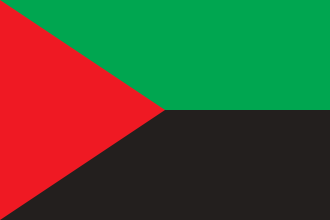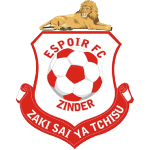Martinique (League) - AI Football Predictions Online
| AI | ||
|---|---|---|
 Division d'Honneur Division d'Honneur | ||
| 2025-04-05 19:00 |
| |
| 2025-04-05 20:00 |
| |
| 2025-04-05 20:00 |
| |
| 2025-04-05 20:00 |
| |
| 2025-04-05 20:00 |
| |
| 2025-04-05 20:00 |
| |
| 2025-04-06 20:00 |
| |
| 2025-04-12 20:00 |
| |
| 2025-04-12 20:00 |
| |
| 2025-04-12 20:00 |
| |
| 2025-04-12 20:00 |
| |
| 2025-04-12 20:00 |
| |
| 2025-04-12 20:00 |
| |
| 2025-04-12 20:00 |
| |
| 2025-04-18 20:00 |
| |
Football in Martinique: A Deep Dive into the Caribbean Passion
Football, or soccer as it is known in some regions, holds a significant place in the hearts of the people of Martinique. Nestled in the Caribbean, this French overseas territory has a vibrant football culture that reflects its rich history, diverse population, and a strong connection to the sport on both local and international stages. This article explores the evolution of football in Martinique, the leagues that shape the landscape, notable clubs and players, and the unique challenges and opportunities faced by the sport in this beautiful island.
The Evolution of Football in Martinique
The history of football in Martinique is intertwined with the island's colonial past, as the sport was introduced by French and British influences in the late 19th century. Initially played informally, the game grew in popularity, and the establishment of organized leagues began in the mid-20th century. By the 1960s, the Martinique Football Federation was founded, which subsequently became a member of FIFA in 1970, allowing the island to participate in international competitions.
Over the years, the sport has provided an avenue for social cohesion and cultural expression among the island's diverse population. As Martinique is home to a mix of cultural influences, including African, European, and indigenous Caribbean elements, the football scene has become a melting pot of styles, tactics, and community pride. Local competitions have become an essential part of community life, drawing crowds and fostering local talents.
The Martinique Championnat National
The premier football league in Martinique is the Championnat National, which features a selection of clubs that represent different regions of the island. The league is known for its competitive nature and has produced several players who have gone on to achieve success in higher leagues, both in France and beyond. Clubs such as Club Franciscain and the Golden Star have been dominant forces in the league, with passionate fan bases that create an electric atmosphere during matches.
The Championnat National operates under a promotion and relegation system, which encourages clubs to strive for excellence. Each season culminates in a playoff system that determines the champion, with the excitement of the matches often drawing in spectators who are eager to cheer for their local teams. The league's structure not only nurtures homegrown talent but also serves as a platform for young players to showcase their skills on a larger stage.
Notable Clubs and Their Impact
Among the notable clubs in the Martinique Championnat National, Club Franciscain stands out as one of the most successful. Founded in 1965, the club has claimed numerous league titles and is known for its strong youth academy, which has produced several players who have gone on to represent Martinique internationally. The club's colors, red and white, are a source of pride for its supporters, who fill the stands at their home ground, Stade Pierre-Aliker, to cheer on their team.
Another prominent club is the Golden Star, which has had its share of triumphs in both domestic and regional competitions. The rivalry between these two clubs, often referred to as the "Classico," ignites passion among fans and showcases the intense competition that exists within the league. Matches between these teams are not just sporting events; they are cultural celebrations that highlight local pride and community identity.
International Representation and Challenges
Despite being a part of France, Martinique has its own national football team, which competes in international tournaments, albeit under the auspices of CONCACAF rather than FIFA. The team has participated in several Caribbean Cup competitions and has made strides in improving its performance on the international stage. The players often come from the local leagues, and their success is a source of inspiration for young footballers on the island.
However, the challenges facing football in Martinique are significant. Limited resources, infrastructure, and financial backing hinder the development of the sport. Many clubs rely heavily on local sponsorships and volunteer assistance, which can impact the quality of training facilities and youth programs. Moreover, the allure of playing in more established leagues in Europe makes it difficult to retain local talent, as young players aspire to showcase their skills on larger platforms.
The Future of Football in Martinique
Despite the challenges, the future of football in Martinique looks promising. With a growing emphasis on youth development and grassroots programs, there is hope for the next generation of players to emerge and take the sport to new heights. The efforts of the Martinique Football Federation to improve coaching standards and invest in better facilities will play a crucial role in shaping the future of football on the island.
Additionally, the increasing visibility of Caribbean football on the global stage, through initiatives and partnerships with larger leagues, can provide opportunities for Martinican players to shine. The passion for the game remains unwavering, and as long as the community continues to rally behind their teams, the beautiful game will thrive in Martinique.
In conclusion, football in Martinique is more than just a sport; it is a reflection of the island's culture, history, and aspirations. Through the dedication of local clubs, players, and fans, the game continues to evolve, promising a vibrant future for the sport on this charming Caribbean island.
 English
English  Español
Español  Italiano
Italiano  Deutsch
Deutsch  Polski
Polski  Português
Português  Français
Français  Nederlands
Nederlands  Svenska
Svenska  Türkçe
Türkçe  Hrvatski
Hrvatski 












